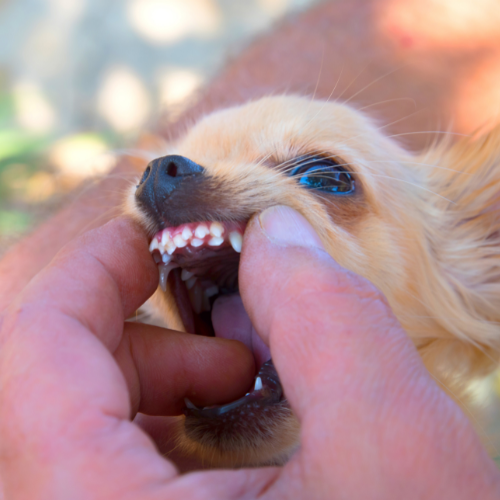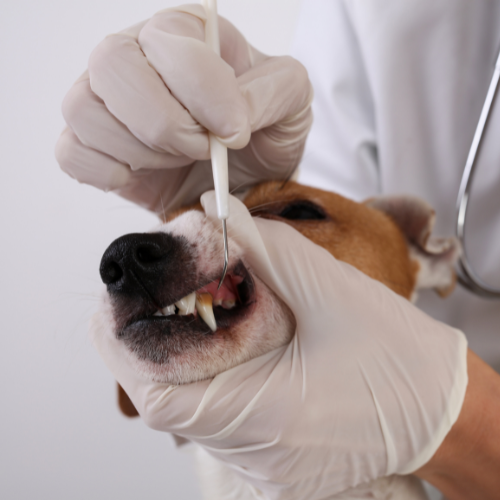Retained Deciduous (Baby) Teeth in Dogs
What are retained deciduous (baby) teeth?
Just like human beings, dogs have a set of deciduous (baby) teeth, which fall out and are replaced by a set of permanent adult teeth.
Most puppies lose their baby teeth when they are around 4-5 months old, however, some smaller dog breeds (e.g. Cavoodles, Maltese, Shih Tzus, Chihuahuas, etc.) are prone to having retained deciduous (baby) teeth where they don’t fall out and persist alongside their adult teeth.
By definition, a deciduous (baby) tooth is considered retained if it is still present in the mouth after its corresponding permanent adult teeth has erupted. If this is the case, and the deciduous (baby) tooth is rock solid and not budging, then extraction of the retained tooth under general anaesthetic is recommended.
What happens if retained deciduous (baby) teeth are not removed?
Many dogs do not have enough space in their jaw for retained deciduous (baby) teeth – just like in humans who have wisdom teeth but not enough space for them so they are extracted. If left to persist alongside their adult teeth, the overcrowding will predispose them to rapid plaque and tartar disease and development of periodontal disease due to food getting lodged and stuck between the retained (baby) tooth, the permanent adult tooth and under the gumline (subgingival space).
Additionally, overcrowding from retained deciduous (baby) teeth can actually displace the permanent adult teeth, causing them to erupt in an awkward position and impact the alignment of the jaw and result in a malocclusion. This malocclusion can impact the way your pet eats and can be painful, especially if the displaced adult teeth cause trauma to the opposing gum or oral mucosa.


How to monitor for retained deciduous (baby) teeth?
One of the most convenient times to remove any retained deciduous (baby) teeth is at the same time as desexing under the one general anaesthetic. When your puppy is about to get desexed at 6-12 months of age, here at My Vet Animal Hospital, we recommend to organise a FREE pre-desexing check to assess for any retained deciduous (baby) teeth. If a couple of retained deciduous (baby) teeth are noted, then you can be prepared in advance that they will be extracted if they are still present on the day of desexing. If many, many baby teeth are noted or the permanent adult teeth have not yet erupted still, then we may consider postponing the surgery by a couple more weeks to give them some more time for the deciduous (baby) teeth to fall out or the adult teeth to erupt.
Please note, if your veterinarian notes a traumatic malocclusion (e.g. base narrow canines causing trauma to the gum), they may recommend a general anaesthetic procedure with a dental specialist to address this painful condition much sooner than waiting until desexing


